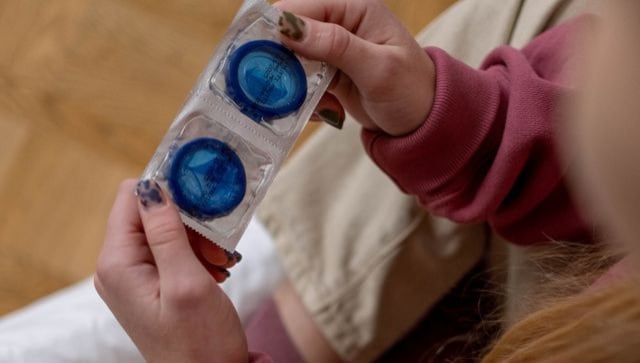While advice for safe sex remains pretty much the same, conversations around safe sex still seem relegated to books and rarely come up in real life.
The majority of youngsters still do not have access to information and education on sexuality, reproduction, and sexual and reproductive health and rights, nor do they have access to preventive and curative services.
As more people become vocal and upfront about sexual preferences and having multiple partners, it is important to be aware and talk about safe sexual practices to foster healthy relationships and keep the risk of sexually transmitted diseases at bay.
Before sex
Whether you are having sex for the first time or having sex for the first time with someone, it is important to talk about safe sex. Please do not feel ashamed of talking about protection and sexual preferences for fear of “killing the mood”. It is also important not to be judgmental of your partner’s sexual history and preferences.
Let the conversation flow seamlessly such that you both allot sufficient time and attention to understand each other’s likes, dislikes, fears, apprehensions, and expectations, as also any limits and boundaries that you intrinsically believe in. Your partner may be allergic to latex or certain flavours, lubes etc. Discuss everything for a safe and pleasurable experience.
Once you’ve had the conversation, get tested for any possible sexually transmitted diseases through blood, urine, and swab tests to rule out HIV, hepatitis B and C infections, as also Syphilis, Herpes, Gonorrhoea, Chlamydia and Trichomoniasis infections.
Your physician will guide you through the process and help you interpret the results of your tests as well.
Those with multiple sexual partners should get tested every 3 to 6 months. Consult your doctor about which test you need depending on your sexual activity. Usually, it will include testing for HIV, Syphilis, Gonorrhoea, Chlamydia and Trichomoniasis. You should also discuss vaccinating for HPV, Hepatitis A, Hepatitis B, and Hepatitis C with your doctor.
During sex
While there is education about condoms for penetrative sex, we also recommend dental dams for oral sex. Dental dams are latex or polyurethane sheets that act as a thin barrier between the mouth and vagina or anus during oral sex.
We understand that these are not popular, and there is very little awareness about them, but if you have sex with multiple partners and do not know their STD status, you’re better off using them.
STIs commonly caught through sex are gonorrhoea, genital herpes, syphilis, and human papillomavirus (HPV).
Be aware of your partner’s body. Look for signs of a sore, blister, rash, or discharge. Check your body frequently for signs of a sore, blister, rash, or discharge. Consider sexual activities other than vaginal, oral, or anal sex. These techniques do not involve the exchange of body fluids or contact between mucous membranes.
Although it seems like common sense, you should use a new condom for each sexual act. If you use sex toys during intercourse, make sure they are washed with gentle soap and water and wiped thoroughly.
After sex care
Women should not douche after intercourse–it does not protect against STIs. And, it could spread an infection farther into the reproductive tract and can wash away spermicidal protection.
Log in your sexual activity on an app. If you get your periods, use a period tracker to watch your cycle, input intercourse (protected and unprotected), if you take contraceptives, or if you’ve taken an emergency after pill. This information greatly helps your doctor when you need to discuss symptoms or need immediate care.
Please remember many STDs are entirely asymptomatic, so it is important to write down the above information to trace back a sexual partner who may have either transmitted you the disease to or contracted it from you. If during routine testing, you find out about an STD, it is important to inform your current and recent sexual partners about it.
Some STDs (like gonorrhoea, chlamydia and syphilis) can be cured with medication. If you are ever treated for an STD, be sure to finish all of your medicine, even if you feel better. Your partner should be tested and treated, too. It is important to remember that you can get the same or a new STD every time you have unprotected sex (not using a condom) and/or have sex with someone who has an STD.
Other STDs like herpes and HIV cannot be cured, but you can take medicines to manage symptoms.
Getting tested regularly and getting vaccinated are both important, but there are other things you can do to reduce your risk for STDs.
Talk honestly with your partner about STDs and getting tested—before you have sex.
Use condoms correctly every time you have sex.
Think twice about mixing alcohol and/or drugs with sex. They can lower your ability to make good decisions and can lead to risky behaviour—like having sex without a condom.
Limit your number of sexual partners. You can lower your chances of getting STDs if you only have sex with one person who only has sex with you.
Know Your Status: If you know your STD status, you can take steps to protect yourself and your partners.
The author is Medical Director, Even Healthcare. Views expressed are personal.
Read all the Latest News, Trending News, Cricket News, Bollywood News,
India News and Entertainment News here. Follow us on Facebook, Twitter and Instagram.
Discovered on: 2023-02-15 05:27:04
Source: Importance of understanding safe sex if there are multiple partners



